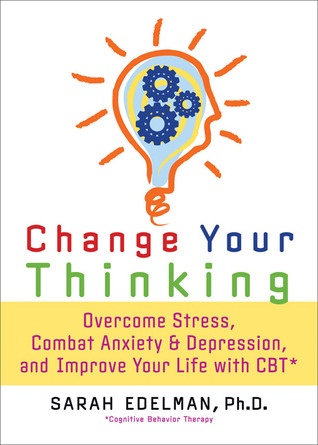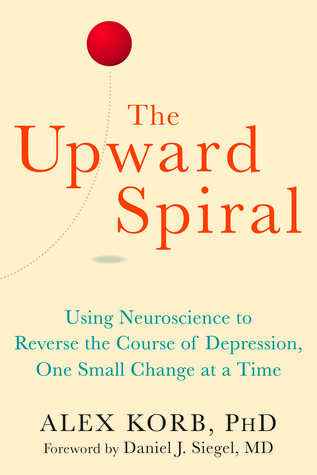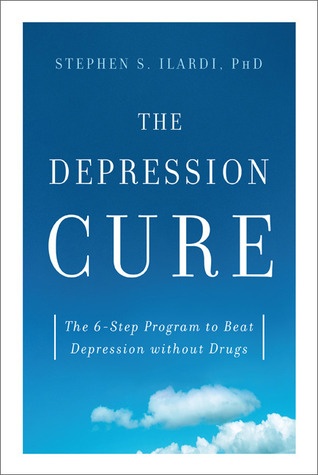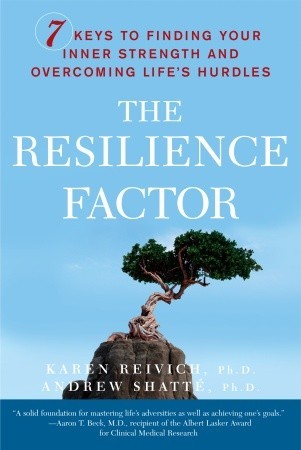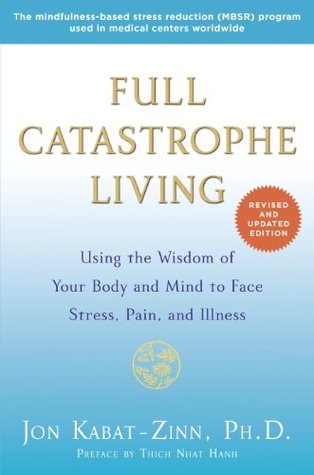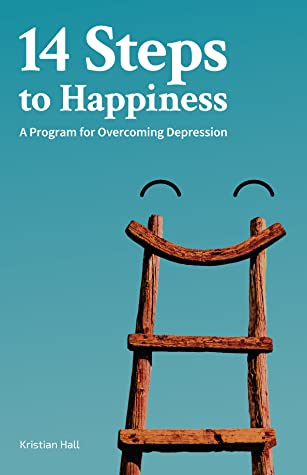In my long journey out of the darkness of depression, I read most of the top books on the topic. I also practiced the techniques found in those books. By following this process, I was able to successfully find my way out of depression, and I have been depression free ever since.
Do you have another favorite? Add it as a comment below.
Here are top five self help books you can use to overcome depression:
1. Change Your Thinking: Overcome Stress, Anxiety, and Depression, and Improve Your Life with CBT – Sarah Edelman
There are many books on Cognitive Behavioral Therapy out there, but to me, this is the best one. What separates it from the crowd is the huge amount of examples found in the book. Dr. Edelman really shows you what the different thought fallacies are, by a long list of every day examples. To, me this understanding of what thought fallacies are in general, led me to understand which ones I was a victim of. This was maybe the most important part of the work that allowed me to be free of depression.
2. The Upward Spiral: Using Neuroscience to Reverse the Course of Depression, One Small Change at a Time – Alex Korb
Alex Korb is a neuro scientist who also has experience with depression. This book gives the best overview of why we are depressed, neurologically speaking. It is filled with facts about how the brain works, how neuro transmitters and hormones affect and constitute our mood.
The book is sometimes too filled with neurological facts, but I still recommend it, to get important knowledge of the inner works of the brain.
3. The Depression Cure: The 6-Step Program to Beat Depression without Drugs – Stephen Ilardi
Stephen Ilardi is a medical doctor with long experience in treating patients with depression. What is great about his book, is that he attacks depression from multiple angles, and he has compiled a program to beat depression in six steps. The steps are an omega-3 rich diet; exercise; plenty of natural sunlight; ample sleep; social connections; and participation in meaningful tasks.
Thus, this book is overlapping with my own, as it also recommends the same steps. What I don’t understand, though, is why Dr. Ilardi didn’t include steps like cognitive work in his six steps, as the science is strong in favor of cognitive behavioral therapy. So if you pick up this book, you should add a book on cognitive techniques (like Change Your Thinking, above) in order to get a more complete package.
4. The Resilience Factor: 7 Keys to Finding Your Inner Strength and Overcoming Life’s Hurdles – Karen Reivich and Andrew Shatté
Karen Reivich and Andrew Shatté are two researchers who belong to Martin Seligman’s group of Positive Psychology pioneers, and the book is reflecting this.
But the book is more about cognitive factors, and together with Change Your Thinking was really important to me in understanding how the (depressed) mind works, and why you can’t trust your own thoughts if you’re depressed.
For example, the authors use the metaphor of teflon/velcro to illustrate how what you already believe will be strengthened, and what you don’t already believe will be dismissed by your mind. They also write about iceberg beliefs, which are important underlying meta-beliefs that will shape how you think about yourself and the world.
To me, the book is very much expanding on the thinking of the American philosopher Robert Anton Wilson, whose book Prometheus Rising was very important in shaping my thinking on the mind.
5. Full Catastrophe Living: Using the Wisdom of Your Body and Mind to Face Stress, Pain, and Illness – Jon Kabat-Zinn
This book is completely different from the others, and deals with meditation and mindfulness. Jon Kabat-Zinn has been credited by being one of the people who has done the most to introduce and promote Eastern concepts of mindfulness to the West. He established the Mindfulness Based Stress Reduction (MBSR) program to treat depression, anxiety and other mental illnesses, a course which is taught at hospitals and institutions around the world, and which has helped countless people dealing with suffering.
Even if you’re skeptical to meditation, I will strongly recommend you pick up this book and give it a go. If you don’t want to read an entire book, you can find online instructions for free – like this recording giving instructions on the body scan meditation method.
Together, the five books on this list gives a great overview of the most important steps you can take to overcome depression. I strongly believe depression should be tackled from multiple angles. In addition, many people get help from medication, and therapy is also something you should definitely try if you suffer from depression.
If you are interested in reading one book which contains all of these methods, you should check out my own:
14 Steps to Happiness: A Program for Overcoming Depression – Kristian Hall
When I suffered from depression, I experienced that no one could tell me what actually works against depression.
So, I had to reinvent the wheel, researching what science tells us works against depression. Then, I practiced the techniques and interventions found in that research. Eventually, over the years, I made notes on what worked, and what didn’t work. Then I compiled these notes into a comprehensive program for overcoming depression, around the following 14 steps:
- Decide to Get Better – and Believe You Can
- Eat Yourself Happy
- Exercise Your Way to Happiness
- Find Sources of Joy
- Sleep Better
- Use Therapy Efficiently
- Become Radically Grateful
- Cultivate the Good People
- Identify Triggers and Domino Effects
- Get a Black Belt in Cognitive Techniques
- Create Meaning in Your Life
- Increase Your Sense of Achievement
- Learn Meditation, Mindfulness and Self-hypnosis
- Learn to Love Yourself
If you want to read a book which puts it all together, I strongly recommend you to pick up a copy of 14 Steps to Happiness.
